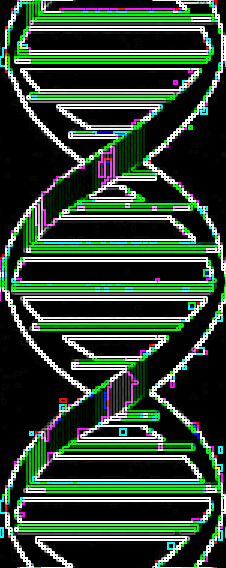Genes compressed in lab-born life
 Researchers have found a way to compress the genetic code of synthetic organisms.
Researchers have found a way to compress the genetic code of synthetic organisms.
Synthetic biology is allowing scientists to create entirely new lifeforms from scratch.
In a recent project from the UK, researchers have created a synthetic version of the bacterium E.coli that can make all of its amino acids with less than the usual amount of genetic code.
The study paves the way for researchers to design synthetic bacteria that have useful and unusual features.
The genetic code of life on Earth is made up of four different chemical bases or nucleotides, called A, C, G and T.
The order of these nucleotides forms a three-letter code, where each trio or ‘codon’ stands for either the insertion of a particular amino acid or a signal to stop making the protein.
There are 64 different codons, but only 20 different amino acids, so multiple codons stand for individual amino acids. This means that there is inherent redundancy in the genetic code.
A team from the Medical Research Council Laboratory of Molecular Biology has recoded the entire E. coli genome to produce an organism that uses 59 codons rather than the full set of 61 to make all of the normal amino acids; in addition, they recoded one of the three stop codons.
The study reveals that the genetic code can be compressed and that bacterial life is still possible even when certain codons are absent.
The team says that in the future, these missing codons could be replaced with sequences that encode non-natural amino acids, creating opportunities for researchers to design synthetic bacteria that make non-natural biopolymers.








 Print
Print